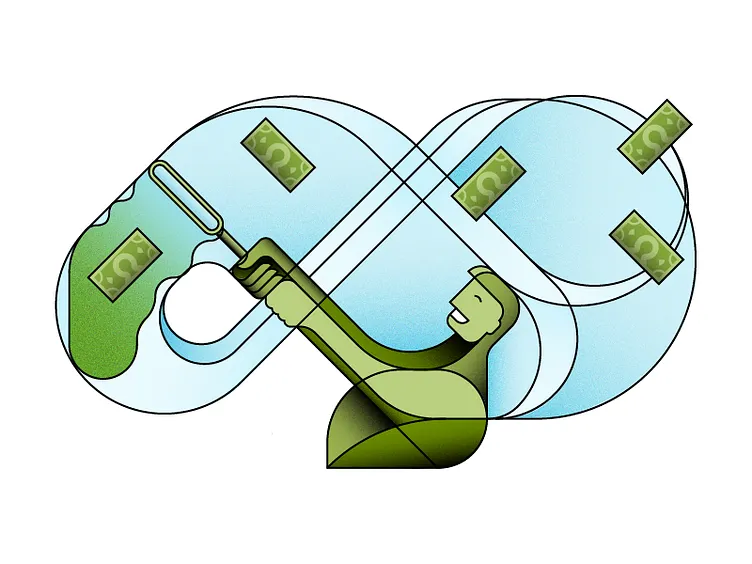Introducing the Q Small Business Score: A Paradigm Shift in Evaluating Small Business Borrowers
In the ever-shifting terrain of small business financing, securing capital stands as the linchpin for growth and longevity. For years, conventional lenders have leaned heavily on personal and business credit scores to gauge the creditworthiness of small enterprises. Yet, the evolving landscape of commerce calls for a more intricate and all-encompassing approach. Enter the Q Small Business Score – a groundbreaking concept akin to the FICO score, but meticulously tailored for small businesses.

Introducing the Q Small Business Score: A Game-Changer for Assessing Small Business Borrowers
In the dynamic landscape of small business financing, access to capital is a lifeline for growth and sustainability. For years, traditional lenders have relied heavily on personal and business credit scores to evaluate the creditworthiness of small businesses. However, the evolving business ecosystem demands a more comprehensive and nuanced approach. Enter the Q Small Business Score – a revolutionary concept akin to the FICO score but tailor-made for small businesses.
The Birth of the Q Small Business Score
Developed to bridge the gap between traditional credit assessment methods and the multifaceted nature of modern small businesses, the Q Small Business Score is a pioneering financial tool. It considers a wide array of factors, ranging from personal and business credit histories to compliance data, transaction records, macroeconomic trends, and even social media sentiment data.
A Comprehensive Approach
One of the key differentiators of the Q Small Business Score is its ability to provide a holistic view of a small business's financial health. Unlike traditional credit scores, which predominantly rely on credit history, the Q Score casts a wider net. Here's a breakdown of the key data points that feed into this innovative scoring system:
1. Personal Credit: The Q Score takes into account the personal credit history of the business owner, recognizing the strong connection between an individual's financial track record and their business's financial performance.
2. Business Credit: Traditional business credit data is considered, providing insight into how the company has managed its financial obligations and relationships with suppliers and lenders.
3. Compliance Data: Staying compliant with local regulations and industry standards is crucial for business sustainability. The Q Score incorporates compliance data to assess a business's commitment to following the rules.
4. Transaction Data: A deep dive into transaction data helps gauge the cash flow patterns, revenue consistency, and overall financial stability of the small business.
5. Industry Data: Different industries have unique risk profiles. The Q score takes into account industry-specific data to provide a tailored assessment for businesses within various sectors.
6. Macroeconomic Data: Understanding the broader economic context is vital for assessing a business's resilience. The Q Score considers macroeconomic data to evaluate how external factors may impact the borrower.
7. Social Media Sentiment Data: In today's digital age, social media sentiment can be indicative of a business's reputation and customer satisfaction. This innovative inclusion adds a layer of insight into a small business's overall image.
Drawing from a Wealth of Data
What sets the Q Small Business Score apart is its robust foundation. This score is not based on a handful of businesses but draws from the results of over 1 million small businesses. This extensive data set allows for fine-tuning and calibration to ensure accuracy and reliability.
The Future of Small Business Borrowing
The Q Small Business Score has the potential to become a widespread standard for evaluating the strength of small business borrowers. It offers a more complete picture of a business's financial health and risk profile, making it a valuable tool for lenders, investors, and even the businesses themselves.
As the small business landscape continues to evolve, having a comprehensive and forward-thinking credit assessment tool like the Q Score can empower both lenders and borrowers. With a clearer understanding of financial strength and risk, businesses can secure the capital they need to thrive, and lenders can make more informed lending decisions.
In summary, the Q Small Business Score represents a significant leap forward in the world of small business financing. By considering personal and business credit, compliance, transactions, macroeconomic factors, and even social media sentiment, it paints a more detailed and accurate picture of a business's financial health. With a vast data pool backing its calculations, the Q Score has the potential to revolutionize how we assess small business borrowers, ultimately fostering a more resilient and prosperous small business ecosystem.
Schedule time with one of our experts.
What Our Clients Say
"We saw a significant operational and financial impact working with Syh Strategies. They helped us leverage our existing data providers more effectively while introducing new vendors to increase our effectiveness. As a result, our underwriters are more confident in their work, our brokers are getting faster and more competitive offers, and our total cost of underwriting applicants has dropped significantly."
"Our goal entering 2024 was to double originations. Partnering with Syh Strategies allowed us to transform our operations and credit decisioning processes, get more competitive, and reduce our risk exposure. We’ve scaled our operations and have grown the book from 9 to 15 million per month, I’m confident we’ll achieve our goals.”
“Working with Syh Strategies allowed us to find gold in our portfolio. The learnings from our collaboration impacted our credit, sales, and operations teams.
We know meet with the Syh Strategies team on a quarterly basis for an objective view of our portfolio.”




